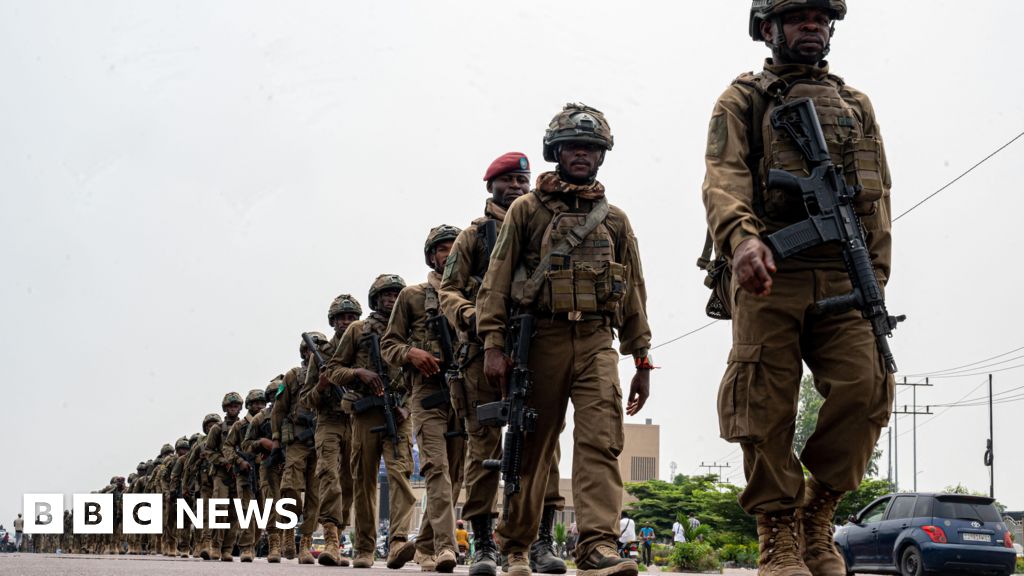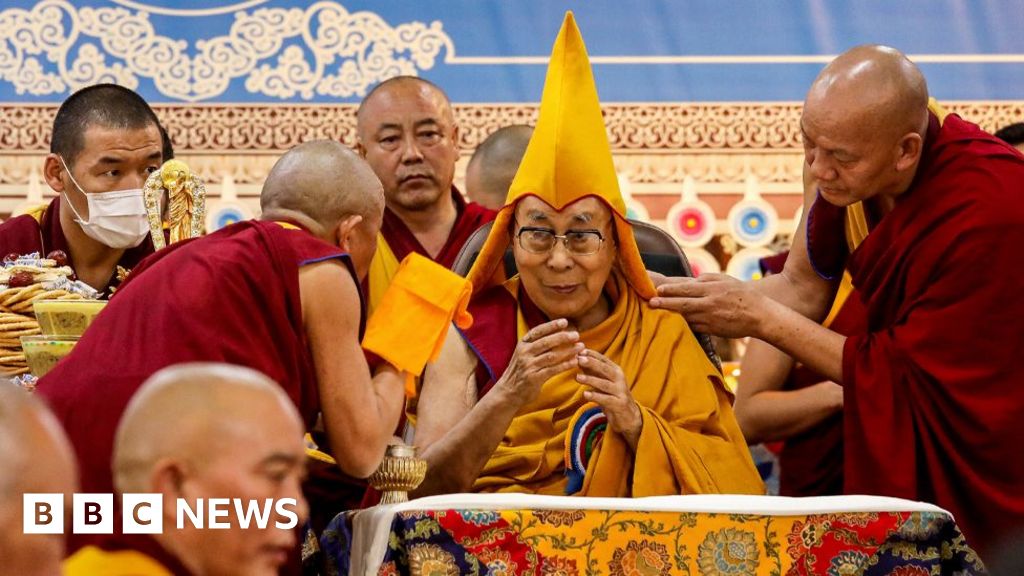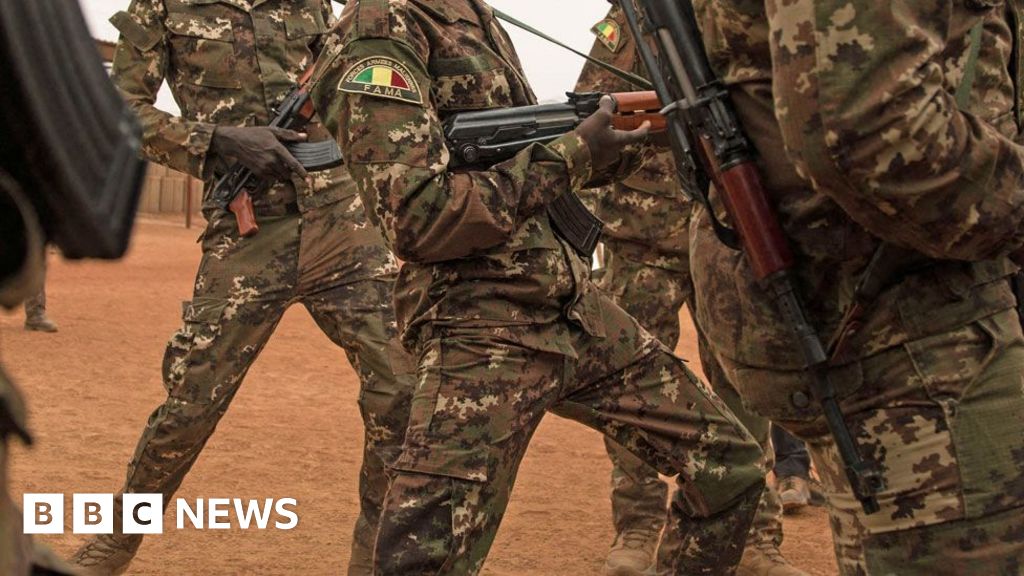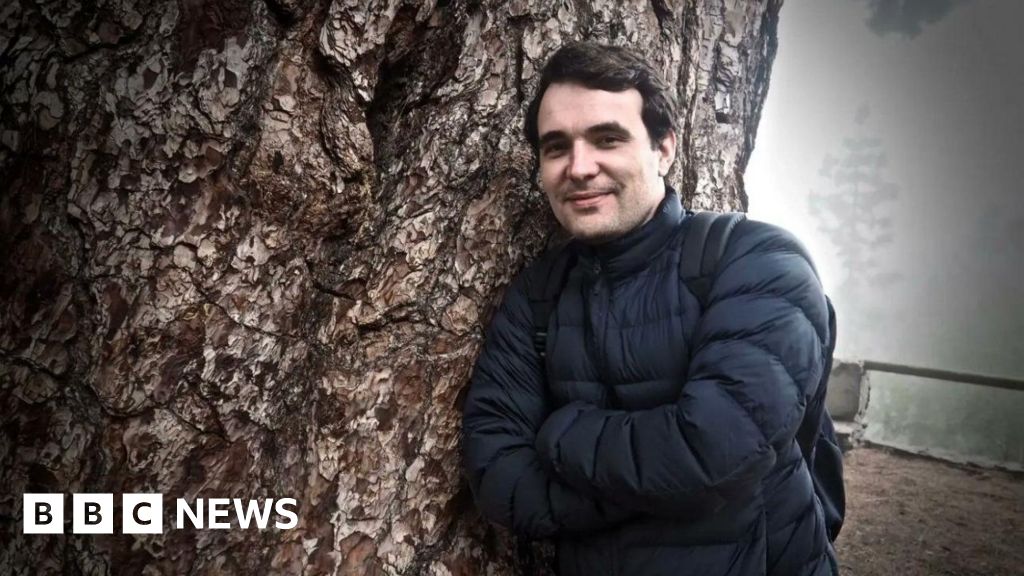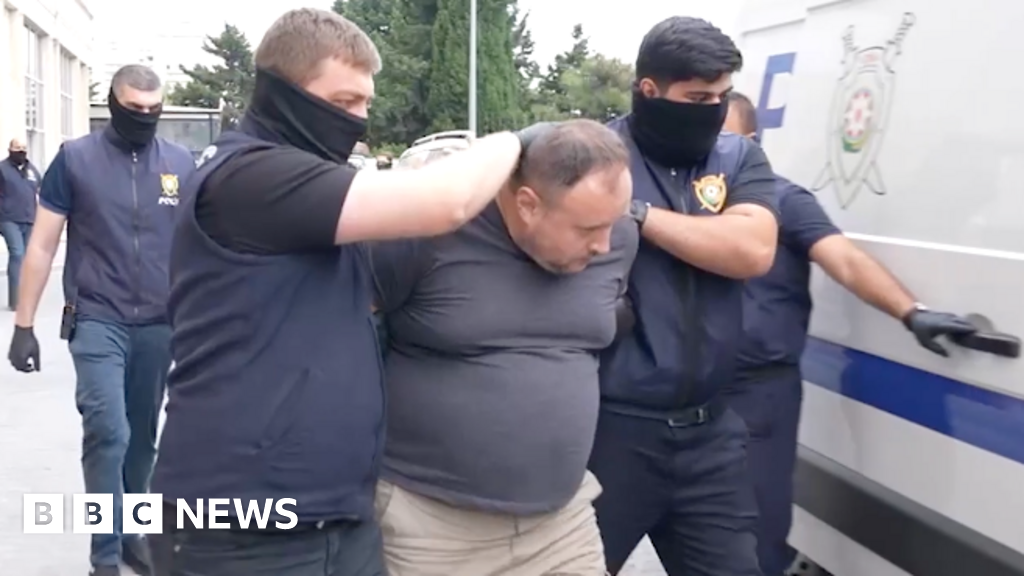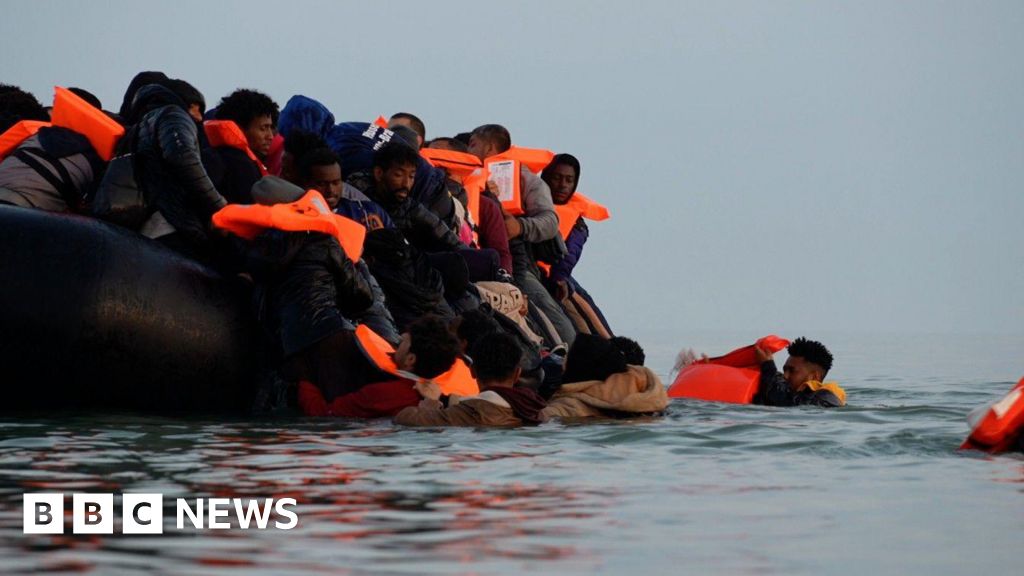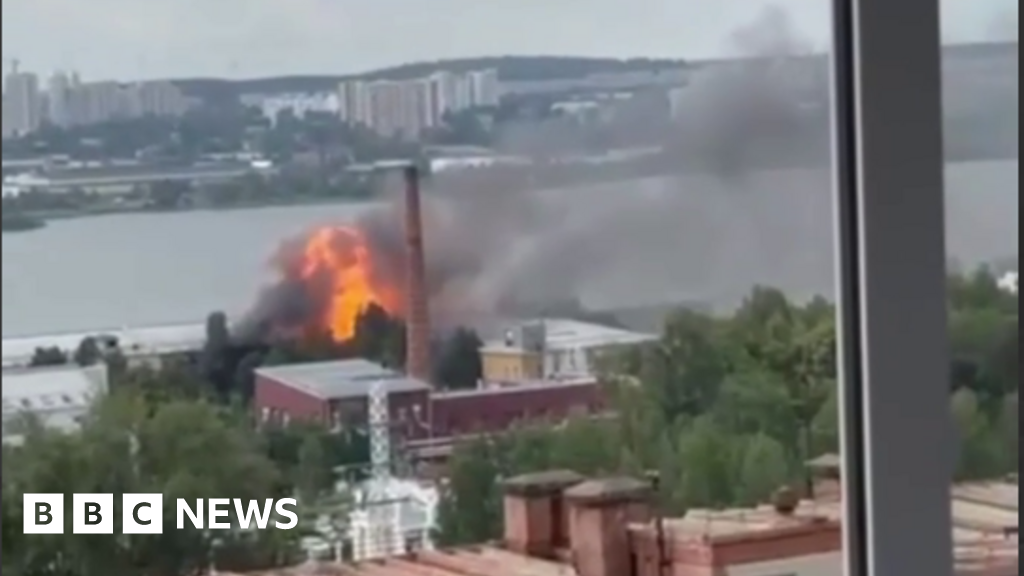BBC News Russian
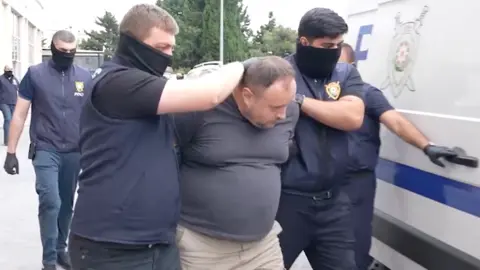 Azertag
AzertagThe deaths of two brothers in Russian custody have laid bare a diplomatic rift with Azerbaijan, as it challenges Moscow’s dominant role in the South Caucasus and establishes itself as a regional power.
Both Azerbaijani men showed signs of trauma, officials in Baku revealed on Tuesday and pro-government media have blamed Russia’s Vladimir Putin for police violence.
Azerbaijan authorities have already arrested two Russian state media employees, accusing them of being FSB agents.
Tensions were already high between the two neighbours. Last December, 38 people died when an Azerbaijani Airlines plane was shot down apparently by a Russian anti-aircraft missile fired by mistake.
This latest spat began last Friday when Russian police operation in the city of Yekaterinburg targeted suspects as part of cold case murder inquiries dating back to 2001.
Two of the suspects, Azerbaijan-born brothers Ziyaddin and Guseyn Safarov, died in custody, and several others were taken to hospital.
Azerbaijan’s Prosecutor General has now launched a criminal case accusing Russian police of torturing and deliberately killing the brothers. A post-mortem conducted in Azerbaijan found they died from “post-traumatic” shock after being severely beaten in custody.
Russia’s law enforcement says one of the men died of a heart attack and the cause of the second death has not been confirmed.
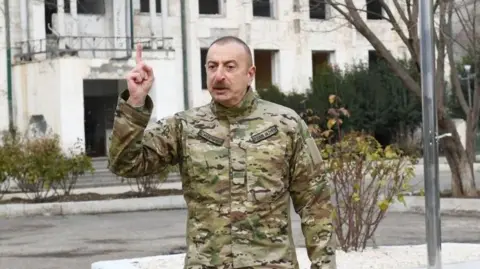 Azertag
AzertagIn response, Baku cancelled an upcoming visit by Russian Deputy Prime Minister Alexei Overchuk, as well as all shows involving Russian artists.
Azerbaijani media outlets with ties to government have criticised Putin, saying his rule is even more brutal than that of Soviet dictator Joseph Stalin, who sent millions of people to death camps.
When the Azerbaijan Airlines plane went down last December, Putin offered an apology, but that failed to satisfy Azerbaijan’s President Ilham Aliyev.
Aliyev demanded a full admission of responsibility and a comprehensive investigation. That triggered a propaganda war, with Baku accusing Russian cultural organisations of espionage and demanding the closure of the Baku office of Russian state media outlet Sputnik.
Sputnik remained operational until this week, when Azerbaijani police raided its Baku bureau and detained two employees, named as Igor Kartavykh and Yevgeny Belousov. Authorities allege both are affiliated with the Russian security service, the FSB. Russia denies this, saying the arrests are “unjust”.
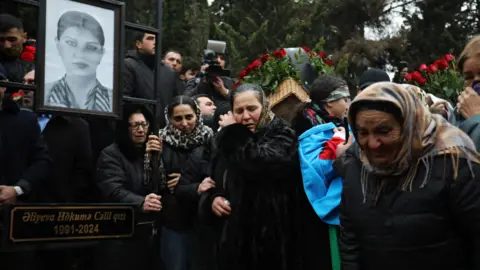 Reuters
ReutersSince the fall of Soviet Union in 1991, a newly independent Azerbaijan has largely kept its distance from Russia, partnering with the West to develop its vast oil and gas resources. A particular sticking point was Moscow’s support for Armenia in the First Nagorno-Karabakh war of 1992-1994, which saw Azerbaijan defeated.
But when Ilham Aliyev took over as president from his father in 2003, the young, Moscow-educated ruler managed to find a common language with Putin.
In 2020, Russia stood aside as Azerbaijan emerged victorious from a new war with Armenia. That victory has changed the power balance in the South Caucasus, where Aliyev now sees himself as a dominant player – not only economically, but also militarily.
Russia’s invasion of Ukraine in 2022 further eroded Moscow’s influence in the region.
Although Aliyev and Putin signed a declaration proclaiming two countries allies, Azerbaijan maintained an independent stance — calling Russian-held parts of Ukraine “occupied” and sending humanitarian aid to Kyiv.
Despite their differences, Moscow continued to have close ties with Baku, in part due to Azerbaijan’s role in major energy and transport routes, including a North–South corridor linking Russia to Asian markets.
Azerbaijan is not directly competing with Russia, but it has been challenging Russia’s dominant role in the South Caucasus, according to Zaur Shiriyev, a non-resident scholar at the Carnegie Russia Eurasia Center.
He believes Baku is wary of a potential resurgence of Russian influence in Georgia, a key transit country for Azerbaijani exports.
Officials in Azerbaijan are equally resistant to the return of pro-Russian factions in Armenia, particularly those opposed to reconciliation efforts over Nagorno-Karabakh.
By engaging now in a public war of words, “Azerbaijan appears to be sending a message that it is no longer willing to accept Russia’s actions passively, especially when its own interests are at stake,” Shiriyev told the BBC.
Source link


